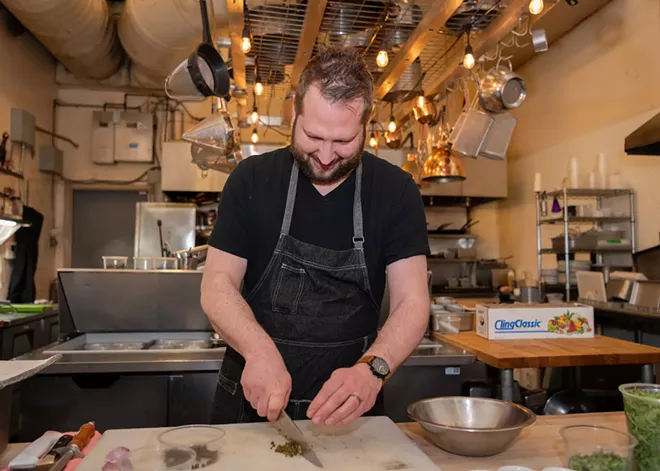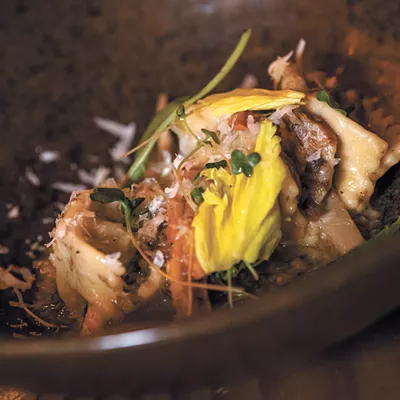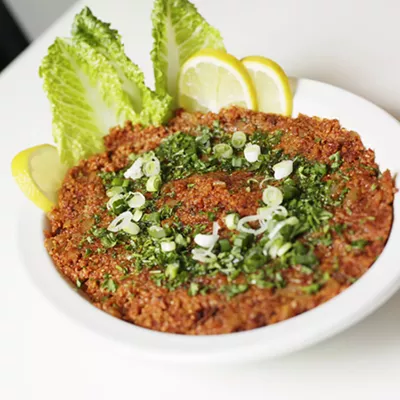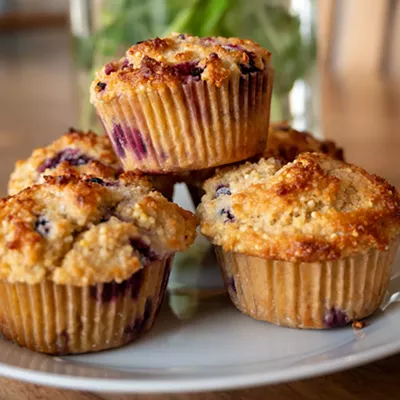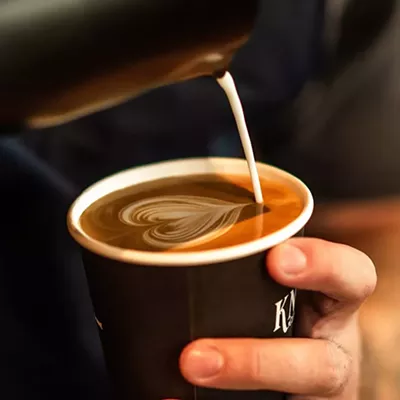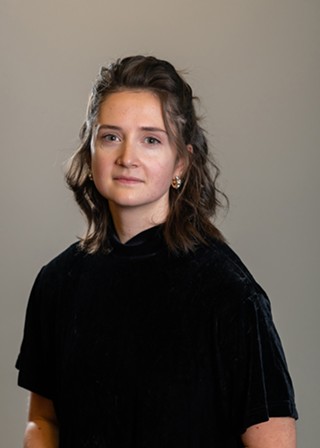
When he was growing up in Moses Lake, food for Peter Froese's family was mostly sustenance.
"It was just, you know, whatever keeps the sides of your stomach apart," he says.
An exception was Sunday afternoon. After church, his family would host a big, long meal with friends, or go to a friend's house for the kind of lunch that fills up most of the day.
"Some sort of protein, a couple of vegetable dishes, maybe some bread, maybe some jam," Froese says. "A whole family-style spread. We would just sit there and eat and talk. Sometimes, that would be two or three hours. The kids would eventually need to go play somewhere, and the adults would stay at the table and the coffee pot would come out."
Froese is now the owner and executive chef of Gander & Ryegrass, one of the most respected and elegant restaurants in downtown Spokane. The homegrown chef keeps his head in the clouds and his feet on the ground. His restaurant is a fine dining establishment that also operates a sister company, Saltbox Sandwich Company, which does $12 takeout sandwiches for lunch. Spring means lots of humble baby herbs and greens, growing in pots labeled with blue masking tape, peering out at Main Avenue from the restaurant's storefront windows. Even the name "Gander & Ryegrass" evokes both wonder and reality. It's named for "taking a gander" at something shiny and new, but also for appreciating the common ryegrass that's often overlooked in our lawns and parkways.
You can absolutely pop into Gander & Ryegrass for a sandwich or bowl of handmade pasta. But Froese's favorite offering is the chef's marathon, his tasting menu that lasts for at least three hours. Not only will the food surprise you, but you'll be forced to slow down, move past the small talk and really be with the people you're sharing the meal with.
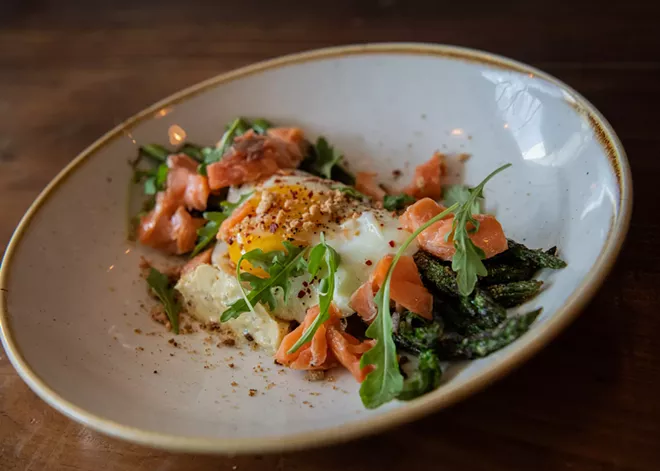
"She very understandably said, 'Well, is this something that you're interested in that you are gonna stick with it, or am I gonna waste my time?'" he says. "I think at that point it was probably more of a waste of time for her."
Froese wasn't all that impressed with food until he moved to Spokane and had a roommate who marinated steak. Froese's mind was blown.
"That was a big trigger for me," he says. "It's like, 'Oh my God, you can do this with food? I didn't know that.' The last 15 years — well, I guess maybe 20 years now — it's been that adventure of, 'Oh my God, you can do that with food? That's so exciting and fun. Let's try that, let's try this.'"
Froese started attending Gonzaga University, eventually majoring in sociology. It was an interesting major for sure, he says, but it also just so happened to be the major with the least amount of minimum credits. Froese spent most of his time studying cookbooks instead.
Today, he can't remember most of the cookbooks he read, unable to recall the name or author of even the most influential one. He remembers that one featured food that wasn't much more elaborate than deli food, mostly bean casseroles and the like — "more simple cooking that's quite intriguing to me," he says. But it was around that time that he also picked up The French Laundry Cookbook by Michael Ruhlman, Susie Heller, and Thomas Keller, the chef whose fine dining restaurant in Napa Valley changed New American food forever.
"A very fancy and then a very not fancy at the same time," Froese says. "That actually is probably a good representation of where I'm at these days with food, too."
During one of his final semesters, Froese studied at Gonzaga's sister campus in Florence. He could just barely afford to go and didn't have much savings to spend, so he ate mostly sandwiches and very cheap Italian fare.
Most weekends, he went to a tiny sandwich shop in the shadow of Il Duomo. It could barely fit the deli counter and the two men behind it, and if the doors were closed, you wouldn't know it was there. Each sandwich was a lesson in perfect simplicity. A Saturday favorite was the ricotta and mortadella, with a few ounces of red wine — "the perfect afternoon meal," if you ask Froese. The ricotta and speck sandwich at Saltbox is an homage to that sacred, affordable snack.
Then, Froese and his wife moved to Seattle so she could study law. He started working in the commissary kitchen for Tavolata, which made all the pasta for most of the local chain restaurants.
"It was kind of wild watching someone make 150 pounds of gnocchi at once," he says.
He then became the pasta chef and the butcher at Altura, a seasonal, elevated Italian restaurant that has left a lasting impact on him. He would carve meat in the morning and roll out pasta at night. Italian cooking has always felt right to Froese, because of its rustic roots.
"I think it's not until more recently — maybe the last 20 or 30 years — that there's been more high-end versions of it. It has the ability to reach in either direction."
Back in Spokane, Froese spent a few months as a stay-at-home dad before taking some shifts with Tony Brown at Ruins and doing a few pop-up events at his old haunt, Sante. When Sante's owners decided to leave, they asked Froese if he wanted to take over the space.
"That was a little bit of a shotgun wedding situation," he says. But he had been workshopping his ideas consistently and figured it was time to go all in.
Since its opening in 2019, Gander & Ryegrass has become a staple of Spokane's fine dining scene. Still, Froese is hesitant to call his favorite service, the chef's marathon, a true tasting meal. In the middle of the elaborate six-course meal, which changes daily, Froese usually inserts an unassuming "refresh" course.
"Sometimes it's a plated fancy dish, but oftentimes we come back to something that's very down-to-earth — a small cheese plate in the middle that has some composition to it, like local honeycomb and stinky cheese or something like that. It's usually fairly simple and straightforward."
The French Laundry would never serve something so humble in the middle of a chef's finest meal, Froese worries. But he and his staff think it's an important pause in the experience, both to check the ego but also to satisfy the appetite.
"It comes back to that [idea of] reaching towards something that's fancy and wonderful and beautiful — so we'll go down the road of adding foie gras or caviar or some wild component that took us three or four days to make," he says. "But at the same time, we have to bring ourselves back to the fact that this is dinner and particularly in the culture that I grew up in, you have to leave that dining room full."

